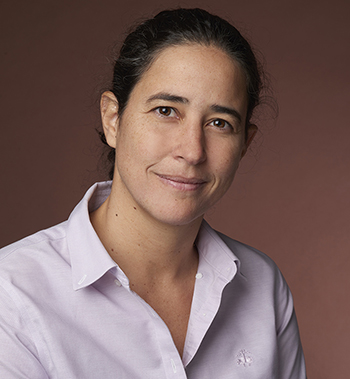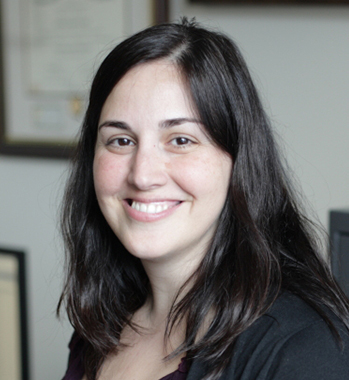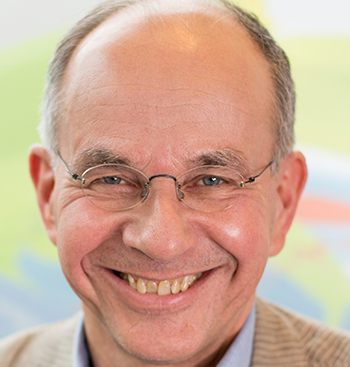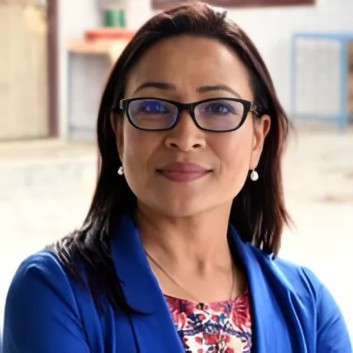Global Senior Leaders Committee
INSAR established the Global Senior Leaders Committee (GSL) in April 2019. The main purpose of the committee is to create a global network of senior leaders in autism research that will support the INSAR Value: Diverse and Global - Represent and serve a diverse and global community.
The GSL is comprised of Regional Representatives (who are also Committee Members) and National Representatives. National Representatives serve as their Country’s point of contact for the INSAR Board about issues of national or international
importance relating to autism research in their country.
INSAR Global Senior Leaders Representatives
List of National Representatives Global Senior Leaders Map
GSL FAQ
The INSAR Global Senior Leaders Initiative (GSL) was established by INSAR in April 2019. The main purpose of the initiative is to create a global network of senior leaders in autism research that will support the “Diverse and Global” Value of INSAR to represent and serve a diverse and global community.
The GSL initiative is overseen by the GSL committee, which includes two Co-Chairs (from different parts of the world), and seven Regional Representatives, each representing a World Health Organization (WHO) Region/Sub-Region (sub-Saharan Africa, Eastern-Mediterranean Region, Europe, South-East Asia, Western Pacific, Northern America, Latin-America). The GSL committee acts as link between the INSAR Board and National Representatives.
Regional Representatives are GSL Committee Members each of whom serves one of the WHO regions/sub-regions. Each Regional Representative acts as link to National Representatives of countries in that region. GSL Committee Members serve a 3-year term.
The National Representatives will serve as their Country’s point of contact for the INSAR Board about issues of national or international importance relating to autism research in their country for a 2-year period .
Yes, all Board members, Committee Members, GSL Regional and National Representatives are required to maintain INSAR Full Membership.
National Representatives have six key tasks during their elected terms:
- Serve as point of contact for the INSAR Board on issues of national and
international importance relating to autism research in their country.
- Support the INSAR Early Career Global Representatives and other INSAR committees.
- Provide
an annual report to the INSAR Board about the state of autism research in their country.
- Contribute annual information on autism research in their country, to be accessible
through the INSAR website.
- Serve as role models for autism research excellence in their countries, and increase INSAR membership recruitment in their country.
- Foster a trans-national research culture that may result in multi-centre collaborations and team science approaches.
Please contact the GSL Committee and National Representatives through the administrative email Committees@autism-insar.org. The email will be received by the INSAR administrative team who will direct it as required.
The GSL initiative is keen to hear from any INSAR members if you have questions or suggestions about autism research in your country. We may not always be able to respond immediately or directly to your enquiry, but we will feed all enquiries and suggestions to the GSL Committee and/or relevant National Representative.
We will not be able to respond to questions about your own research or research projects, and we may not be able to comment on or advise on clinical services in your country.
No, the GSL initiative will not be able to help you with your own research. We will, therefore not be able to advertise research projects or send surveys or questionnaires to INSAR members on your behalf.
INSAR and the GSL initiative may select some of their own research projects, for instance global surveys, and will invite INSAR members to participate. These projects will be guided by the INSAR Board and by the Strategic objectives of INSAR.
No, the GSL initiative will not directly advertise meetings or conferences. However, National Representatives will be asked every year to list activities (including workshops and conferences on autism), so you could suggest your meetings to your National Representatives, and they will in turn propose those to be added to your country’s webpage.
Please note that the INSAR Board has the final say in what does and does not get advertised on the website. Please also remember that these actions take time, so make sure you let your National Representative know a long time in advance if you think you have a relevant meeting or conference to advertise.
Goals and Roles
a) serve as the point of contact for the INSAR Board about issues of national or international importance relating to autism research in their country, b) support the INSAR Global Early Career
Representatives (who report to the Early Career Committee) and the Global Ambassadors, c) report to INSAR’s Board in a one page Annual Report about the state of autism research in their country, d) yearly report on autism
research in their country accessible via the INSAR Global Map on the INSAR website, e) serve as a role model for autism research excellence in their country, thus increasing INSAR membership recruitment in their country, f) foster
a trans-national research culture that results in multi-center collaboration and team science approaches.
Annual Application Process
The INSAR Board will invite self nominations and nominations to collect applications from senior autism scientists/clinicians in every country to take on this role for their country, and applications will be reviewed by the Board.
Ideally these would be researchers (see below) but in recognition that some countries may not yet have a senior research infrastructure, senior clinicians may also be considered.
The Board will also create a Senior Global Leaders Committee who will receive and make nominations of a senior autism scientist for this role for each country. The Senior Global Leaders Committee will then select the top candidate
for each country, have the name approved by the Board, and then invite them to take up the role, for a period of 2 years (renewable).
The person would then stay on for another 2 years as Past Senior Global Leader, to support the incoming person, and would assist with recruiting the incoming new Senior Global Leader.
Qualities of Candidates
- Be a Principal Investigator (PI) on an autism research grant in their country, and/or
- Hold a University Faculty position in a respected university in their country, and/or
- Lead a Clinic in an evidence-based clinical service in their country;
- Experience of serving on national committees related to autism research or policy in their country;
- Experience of supervising early career scientists in autism research (PhD and postdoctoral scientists), where infrastructure allows for this;
- Be a good communicator in relation to autism science and policy issues;
- A track record of collaboration either nationally or internationally in the field of autism research, where infrastructure allows for this.
Governance
- The Senior Global Leaders Committee will oversee the initiative.
- There will be two joint chairs of this Committee.
- The Senior Global Leaders will report to this Committee.
- The Senior Global Leaders Committee will report to the Board.
Questions? Contact committees@autism-insar.org.
Global Senior Leaders Committee
Dr. Alexia Rattazzi
Co-Chair, American Region South
Read Bio
Dr. Evdokia Anagnostou
Co-Chair, America Region - North
Read Bio
Prof Jan Buitelaar
Europe Region
Read Bio
Dr. Chongying Wang
Western Pacific Region
Read Bio
Close
Dr. Alexia Rattazzi, American Region South
Alexia Rattazzi is a Child and Adolescent Psychiatrist from Buenos Aires, Argentina. In 2011 she co-founded PANAACEA (Argentine Program for Children, Adolescents and Adults with Autism Spectrum Conditions), an Argentine NGO dedicated to ASD awareness,
advocacy, training, services and research in Argentina. She has been an INSAR member since 2009, and was Co-Chair of the INSAR Cultural Diversity Committee from 2015 to 2019. She attended the Interdisciplinary Autism Research Training
Program at the MIND Institute, UC Davis, California, U.S. from 2014 to 2016 and is one of the founders of REAL (Latin American Autism Spectrum Network).
Close
Dr. Evdokia Anagnostou, American Region - NorthDr. Evdokia Anagnostou, MD, is a Child Neurologist and Senior Clinician Scientist at Holland Bloorview Kids Rehabilitation Hospital; Professor in the Department of Pediatrics at the University
of Toronto; Assistant Director of Holland Bloorview’s Research Institute and co-lead of the Autism Research Centre (ARC). She holds a Canada Research Chair in translational therapeutics in Autism Spectrum Disorder (ASD) and the Dr. Stuart
D. Sims Chair in Autism at Holland Bloorview. Dr. Anagnostou’s research focuses on translating genomic and systems biology findings into novel treatments for ASD.
Close
Prof Jan Buitelaar, Europe Region
Jan Buitelaar is a professor of psychiatry and child and adolescent psychiatry at the Radboud University Medical Centre, and at the Donders Institute for Brain, Cognition and Behaviour in Nijmegen, The Netherlands. He has a strong clinical and research
interest in neuropsychiatric disorders as ADHD, autism and impulsivity and aggression related disorders, and is involved in pharmacological, cognitive, clinical, genetic, and neuroimaging studies in these disorders.
Close
Dr. Chongying Wang, Western Pacific RegionChongying Wang, DPhil, BCBA-D, is Founding Director of the Autism Research Center and Professor of Psychology at Nankai University in China. She obtained her doctorate in experimental
psychology from the University of Oxford, UK, and was a Fulbright Scholar at Stanford University, USA, and a visiting scholar at the Olga Tennison Autism Research Center (OTARC) at La Trobe University, Melbourne, Australia. Her research focuses on early identification, social-cognitive development, and implementing evidence-based interventions for people with autism.
Sunita Maleku Amatya
South-East Asia Region
Read Bio
Dr. Ammar Albanna
Eastern Mediterranean Region
Read Bio
Close
Sunita Maleku Amatya, South-East Asia RegionDr. Sunita Maleku Amatya, Founder and Chairperson of AutismCare Nepal Society is an activist and parent to son with autism. Dr. Amatya started Autism movement in Nepal when lack of information
and misconceptions about Autism was abounded. She set about changing scenario in Awareness, Diagnostics, Education, Allied services, Human resource development and policy changes for Autism in Nepal. Dr. Amatya served as INSAR Global
Senior leader, Nepal Representative since 2022. She served as moderator in INSAR South Asia Regional webinar in March 2024. The webinar was a great success to bring South Asia stakeholders to get involved in INSAR. She is awarded
for INSAR Advocacy Research Award 2024. She is the CO -PI of NAMASTE (Neurodevelopment and Autism in South Asia Treatment and Evidence)
Close
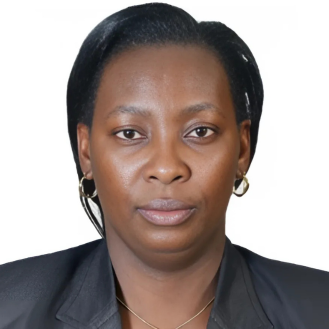
Dr. Pauline Samia, Africa Region
Prof. Pauline Samia is a Pediatric Neurologist and Chair of the Department of Pediatrics at Aga Khan University in Nairobi. She has research interests in Epilepsy, Attention deficit hyperactivity disorder, autism spectrum disorder, preterm birth, and cerebral palsy. Prof. Pauline Samia is a recipient of the Sheila Wallace award of the International Child Neurology Association (ICNA) for her contributions to Pediatric neurology in Africa.
Prof. Samia has consistently provided clinical service for referrals with various neurology conditions from the Eastern African region for over a decade. This large cohort of children and adolescents has facilitated her clinical research and operationalized the first Pediatric neurology fellowship training program in the region.
Prof. Pauline Samia currently leads the Telemedicine taskforce of the International League against Epilepsy [ILAE] and is an active member of the research advocacy and dietary therapies taskforces of ILAE. Prof. Samia is a board member of the International Child Neurology Association [ICNA].
Close
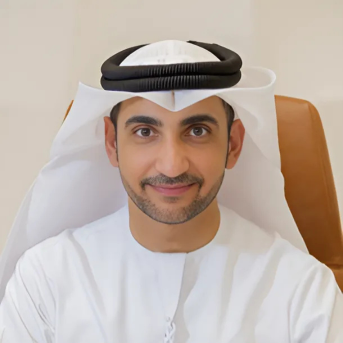
Dr. Ammar Albanna, Eastern Mediterranean RegionDr. Ammar Humaid Albanna, MD, FRCPC, IFAPA • Director, Al Amal Psychiatric Hospital, Emirates Health Services, UAE • Founding
President, Emirates Society for Child and Adolescent Mental Health • Executive Board Member of the Emirates Medical Association • Vice President,
International Association of Child and Adolescent Psychiatrists and Allied Professionals (IACAPAP) Dr. Ammar Albanna is a Consultant Child and Adolescent Psychiatrist and leading mental health & Autism expert in the UAE.
He currently serves as the Director of Al Amal Psychiatric Hospital under Emirates Health Services, and has spearheaded mental health services for children and adolescents in the UAE and beyond. Trained at McGill University, with a fellowship
in Pediatric Neuropsychiatry at Toronto’s SickKids, he specializes in Autism Spectrum Disorders and neuropsychiatric conditions. Dr. Albanna founded the Emirates Society for Child and Adolescent Mental Health and played a pivotal role
in the Dubai Autism Declaration and Autism Guidelines. His research spans genomics of autism and artificial intelligence in mental health, earning him prestigious grants. Additionally, he has chaired major events like IACAPAP 2022 world
congress, Global Autism Care Systems Conference and currently serves as Vice President of IACAPAP & executive board member of the Emirates Medical Association.
INSAR Global Initiatives
Check out the other global initiatives of INSAR.
Learn More
|

